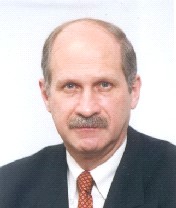Optimal Synthesis of Complex Distillation Columns using Rigorous Models
Prof. Ignacio Grossmann, Carnegie Mellon University,
co-authored with Pío A. Aguirre and Mariana Barttfeld
The synthesis of complex distillation columns has remained
a major challenge since the pioneering work by Sargent and Gaminibanadara
was reported in 1976. In this paper we first address the optimal design of
distillation of individual columns using tray-by-tray models and examine
the impact of different representations and models, NLP, MINLP and GDP, as
well as the importance of appropriate initialization schemes. We next
address the synthesis of complex column configurations for zeotropic
mixtures and discuss different superstructure representations as well as
decomposition schemes for tackling these problems. Finally, we briefly
discuss extensions for handling azeotropic mixtures, reactive distillation
columns and integration in process flowsheets. Several numerical examples
are presented to demonstrate that effective computational strategies are
emerging that are based on disjunctive programming models that are coupled
with thermodynamic initialization models and integrated through
hierarchical decomposition techniques.
 Ignacio Grossmann
obtained the B.Sc. degree in 1974 from Universidad Iberoamericana, Mexico;
and the M.Sc. and Ph.D. degrees from Imperial College, University of
London, England, in 1975 and 1977, respectively. He is currently a
Professor in the Department of Chemical Engineering at Carnegie Mellon
University. His research activities concern the development of
discrete-continuous optimization models and methods for problems in
process systems engineering. He specifically, addresses problems in the
areas of process synthesis, planning and scheduling of process systems,
through novel mathematical programming approaches, which rely on linear
and nonlinear models with discrete and continuous variables. These include
mixed-integer programming (MILP and MINLP), General Disjunctive
Programming (GDP), global optimization and multiperiod optimization. Both
deterministic models as well as models with uncertainty are considered.
His work also provides a balance between theory, computation and real
world applications. He has over 240 refereed publications and is the 16th
most cited author in Computer Science.
Ignacio Grossmann
obtained the B.Sc. degree in 1974 from Universidad Iberoamericana, Mexico;
and the M.Sc. and Ph.D. degrees from Imperial College, University of
London, England, in 1975 and 1977, respectively. He is currently a
Professor in the Department of Chemical Engineering at Carnegie Mellon
University. His research activities concern the development of
discrete-continuous optimization models and methods for problems in
process systems engineering. He specifically, addresses problems in the
areas of process synthesis, planning and scheduling of process systems,
through novel mathematical programming approaches, which rely on linear
and nonlinear models with discrete and continuous variables. These include
mixed-integer programming (MILP and MINLP), General Disjunctive
Programming (GDP), global optimization and multiperiod optimization. Both
deterministic models as well as models with uncertainty are considered.
His work also provides a balance between theory, computation and real
world applications. He has over 240 refereed publications and is the 16th
most cited author in Computer Science.